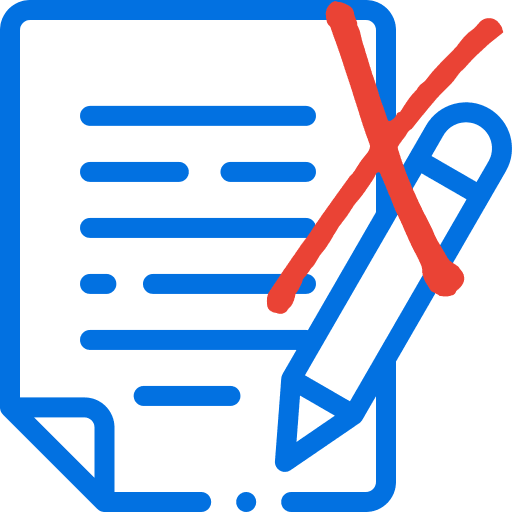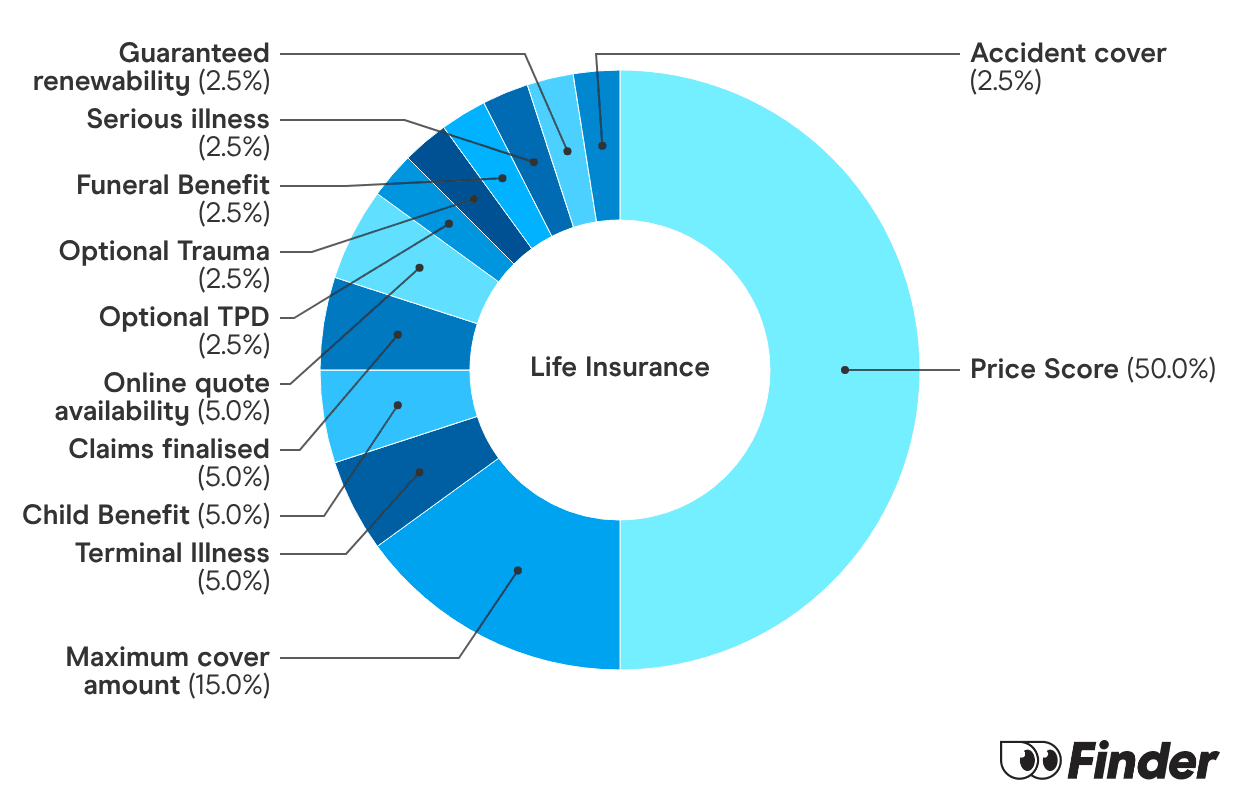
Key takeaways
- An underwritten life insurance policy means that the price you pay will be based on your medical and lifestyle history at the time of application.
- An underwritten policy is often less risky than a policy that is not underwritten.
- Not all direct life insurance policies offer underwritten life insurance.
What is underwritten life insurance?

Underwritten
With an underwritten life insurance policy, your application is assessed upfront. This means you'll be asked questions about your health, occupation and lifestyle when you apply, and your premium (how much you pay for a policy) will be based on how risky your insurer thinks you are.

Not underwritten
This is typically when you are assessed at the time your nominated beneficiary (most likely a loved one) makes a claim (e.g. once you pass away). In many cases, these policies contain automatic exclusions which apply to pre-existing medical conditions you may have had. They can also sometimes take longer to pay out because the assessment is done at the time you claim.
What types of risk factors are assessed?
An underwriter will evaluate your:
How does life insurance underwriting work?
Underwriting is essentially the process of working out how much risk a person presents to the insurer so that the right premium can be set. When it comes to life insurance, the process of underwriting (and approval) can be completed within a day, but it can take weeks in some cases. Here's a brief summary of how it works:

When does underwriting occur?
This will depend on the nature of your policy. If your cover is:
- A policy bought outside of super. Most life insurance companies will require underwriting upon application. This can include a written questionnaire, and a follow up phone call from the underwriter
- Group policies and superannuation life insurance. Many superannuation and workplace insurance schemes do not require underwriting unless the insured want's to increase their level of cover.

What documents are generally required?
As a minimum the insurer will require an application form and a personal statement with details of your:
- Residency status
- Current occupation
- Financial status
- Pursuits or pastimes
- Medical history – both you and your family's

What types of medical documents are required?
- Details of medical history. This can include statements from your doctor about any current or historic conditions
- Information of any existing diseases or health disorder. This can include statements about the nature of condition and current treatments you are on.
- General questions about your family's medical history. This is done to assess any chance of suffering a hereditary disease.
Underwritten life insurance: Pros and cons summarised
Pros
- It means you know upfront what you will and won't be covered for (In comparison to most off-the-shelf products which automatically exclude pre-existing conditions without notifying you).
- Confidence if you do need to make a claim.
- It means you have the opportunity to assess your pre-existing conditions and get covered (but possibly at a higher rate).
Cons
- If you have a group policy with your superfund you might already be covered even if you have a pre-existing condition. Individually underwriting with a life insurer might exclude your condition.
- The application process takes longer and you'll need to provide more information.
Compare underwritten life insurance now
Why compare life insurance with Finder?
-
You pay the same price as buying directly from the life insurer.
-
We're not owned by an insurer (unlike other comparison sites).
-
We've done 100+ hours of policy research to help you understand what you're comparing.
Finder Score - Life Insurance
Life Insurance is a little complicated and a lot overwhelming. That's why we made the Finder Score, to make it easier to compare Life Insurance products against each other. Our experts analysed over 30 products and gave each one a score out of 10.
But a higher score doesn't always mean a product is better for you. Your situation is unique, so your policy choice will be too. Don't think of Finder Score as the final word, but as a good place to start your life insurance comparison.
What risk factors impact the premium or whether the policy is accepted?
Here are some factors that underwriters typically look at:
- Your age: As far as life insurance cover is concerned, a person’s age is an important consideration. People who are in their thirties or younger typically present lower risk than older people and so may qualify for lower premium rates.
- Smoking Status: If the applicant is a smoker, premium rates can double. You could be eligible for a premium reduction if you've quit the habit for 12 months.
- Family medical history: If you have a long history of serious illness such as cancer or heart problems in your family, then your risk may be assessed as high by the underwriters. On the other hand, if you are in good health and you do not have a genetic history or predisposition to serious illnesses, then your life insurance application should be accepted at standard premium rates.
- Current health: If you are in good health you obviously stand to be assessed as a lower risk than someone who has some illness or who has undergone multiple surgeries in the past.
- Your job: How risky your occupation is can also have a significant impact on your life insurance premiums. If you're in a job where you need to tackle dangerous or risky situations on a regular basis, your risk factor will be considered higher by the underwriters. This could cause your life insurance premiums to increase.
How does medical underwriting work?
When your application is assessed by an underwriter, you may be asked to complete a medical examination depending on the information that you have provided. Your medical history from your doctor or other medical professional cannot be obtained without your permission and any information gathered will be treated in confidence.
Some medical conditions that will generally prompt an insurance underwriter to request a medical report from your doctor and/or medical examination include:
- Heart trouble and high blood pressure
- Chest pains
- Lung disorders
- Bronchitis
- Chronic indigestion
- Diabetes type I and II
- Malignant tumours or cancer
- Kidney, bladder, liver disorders and stones
- Hepatitis
- Mental illness
- Epilepsy
Sources
More guides on Finder
-
Why are women charged more than men for income protection?
Financial literacy advocate Pascale Helyar-Moray on what women do to avoid losing out to higher costs.
-
Denied life insurance? What’s next?
Was your life insurance application denied? This article looks at the top reasons why your application might have been denied and what you can do to get the right cover.
-
Life insurance for smokers
Ever wondered how much more life insurance for smokers costs in Australia? Learn about how smoking and vaping can impact your policy.
-
Should I tell my life insurance company that I smoke?
Find out how smoking will impact what you pay for life insurance, and what you can do to have your premium reviewed.
-
What is life insurance?
Not sure what life insurance is? We take you through the basics of life insurance with our easy to understand guide.
-
Life Insurance Beneficiary Rules Australia
Read our guide to updating life insurance beneficiaries and making sure your money goes to the right people.
-
No Medical Life Insurance
Depending on the applicant and the type of life insurance policy, there may be no medical tests required.
-
Stepped premiums vs level premiums
finder's guide to choosing between stepped and level insurance premiums.






